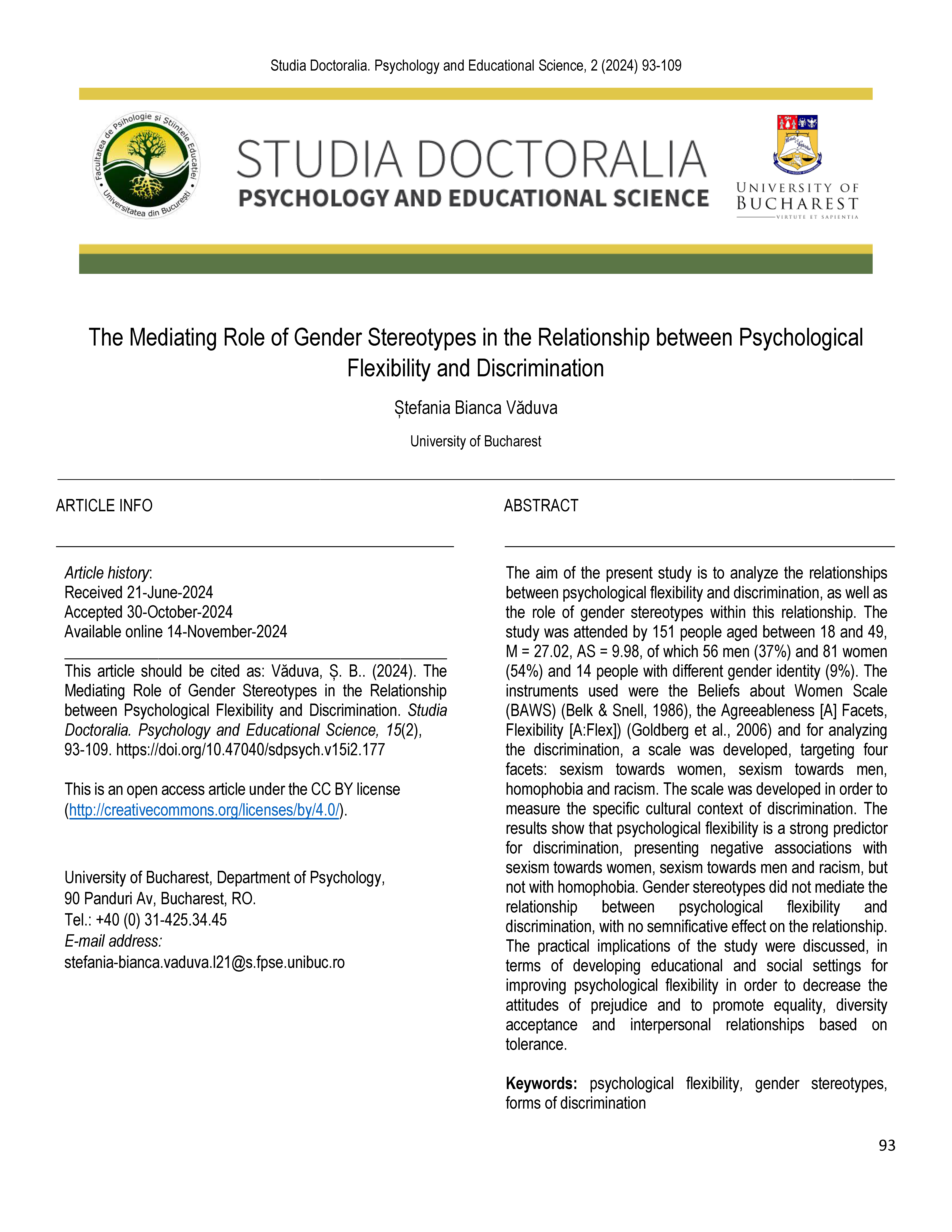The Mediating Role of Gender Stereotypes in the Relationship between Psychological Flexibility and Discrimination
DOI:
https://doi.org/10.47040/sdpsych.v15i2.177Cuvinte cheie:
psychological flexibility, gender stereotypes, forms of discriminationRezumat
The aim of the present study is to analyze the relationships between psychological flexibility and discrimination, as well as the role of gender stereotypes within this relationship. The study was attended by 151 people aged between 18 and 49, M = 27.02, AS = 9.98, of which 56 men (37%) and 81 women (54%) and 14 people with different gender identity (9%). The instruments used were the Beliefs about Women Scale (BAWS) (Belk & Snell, 1986), the Agreeableness [A] Facets, Flexibility [A:Flex]) (Goldberg et al., 2006) and for analyzing the discrimination, a scale was developed, targeting four facets: sexism towards women, sexism towards men, homophobia and racism. The scale was developed in order to measure the specific cultural context of discrimination. The results show that psychological flexibility is a strong predictor for discrimination, presenting negative associations with sexism towards women, sexism towards men and racism, but not with homophobia. Gender stereotypes did not mediate the relationship between psychological flexibility and discrimination, with no semnificative effect on the relationship. The practical implications of the study were discussed, in
terms of developing educational and social settings for improving psychological flexibility in order to decrease the attitudes of prejudice and to promote equality, diversity acceptance and interpersonal relationships based on tolerance.





